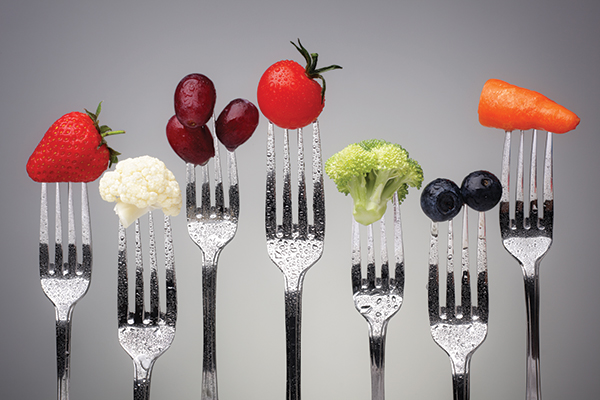
Photo © Shutterstock / Brian A. Jackson
Nutrition often takes a back seat to cancer care. But for children undergoing cancer treatment, proper nutrition is a necessity. Studies have found that children who are struggling with weight gain or loss before or during treatment are more likely to develop an infection, not respond as well to cancer treatments and have a lower quality of life
“[Physicians] and parents are really focused on treatment, as it should be,” says Joya Chandra, a translational oncology researcher at the University of Texas M. D. Anderson Children’s Cancer Hospital in Houston. “But we have to figure out how to integrate the nutrition and energy balance component because there’s more and more research showing that it does impact outcomes.”
Estimates of the number of pediatric cancer patients affected by malnutrition vary widely. Body measurements at diagnosis can also be thrown off by the tumor, which reports show can make up more than 10 percent of a child’s weight. Rates also differ by cancer type. A review Chandra co-authored in 2012 in Pediatric Blood & Cancer notes the lowest malnutrition rate was in children with leukemia, with about five to 10 percent of these children underweight at diagnosis. Children diagnosed with neuroblastoma, a nerve tissue cancer usually found in the adrenal glands or along the spine, had the highest rate of malnutrition at the time of diagnosis, at 50 percent. For children with other solid tumors, the review shows rates of up to 30 percent.
Changes in a child’s weight may affect more than treatment outcomes. A study of 104 children with various types of cancers published in October 2015 in Supportive Care in Cancer found malnutrition and weight loss were associated with a lower health-related quality of life during treatment. (Quality of life was also lower in children who experienced weight gain.)
Nancy Sacks, a pediatric oncology nutritionist at The Children’s Hospital of Philadelphia, says children’s nutritional needs vary based on what types of cancer they have and how they are treated. Treatments for some types of cancers may make it difficult for a child to get enough nutrients and not lose weight, while treatments for other types may lead to weight gain. Regardless of the diagnosis, “If there’s one thing I would encourage a parent to do,” she says, “it’s ask early on to meet with a dietitian.”
Cancer Today magazine is free to cancer patients, survivors and caregivers who live in the U.S. Subscribe here to receive four issues per year.




